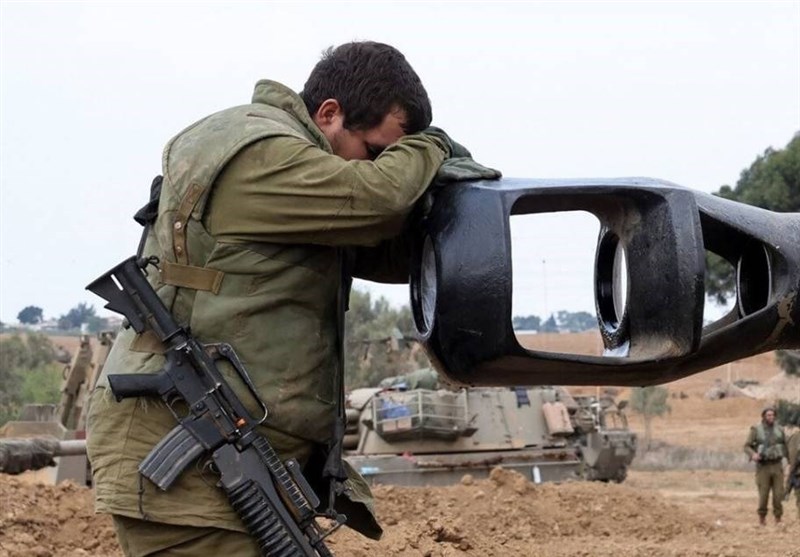Hebrew media: Zionists have suffered from mental disorders in the Gaza war.
The Yedioth Aharonot newspaper announced in its Tuesday issue that during the 600 days since the War of Iron Swords (the ground invasion of the Gaza Strip), the number of calls made to the mental health emergency service, whether by phone or online, has exceeded half a million.
According to the monitored data, most of the people requesting help were young people, and some of these people were those who had encountered problems while serving in the Israeli army, whether as a regular soldier or a reserve force.
Read more
Dimensions of the astronomical losses to the Israeli economy due to the Gaza war
The unprecedented isolation of the Zionist regime in the shadow of the Gaza war
Many experts describe the mental health of Israelis as a pressure cooker. According to one of the doctors at the center, many of the calls are from reservists who are suffering from survivor’s guilt and are tormented by the fact that they are still alive (because the rest of their comrades were killed in the conflict). One caller said, “I’m sorry I didn’t die in Gaza, I feel guilty that I am still alive.”
The ERAN Society, a government agency specializing in mental health and emergency services in Israel, has published a special report on the mental health of Israelis during the past 600 days of the war.
According to Yedioth Ahronoth, the report reveals for the first time that more than 66,000 Israeli military personnel, along with a large number of reservists and their families, have sought services from the center due to mental health problems.
This is while, according to existing assessments, the number of military personnel, both cadres and reservists, and their families, who are calling about this emergency, is very high, but many of them are unwilling to disclose their military occupation.
Some reservists emphasize in their calls that they have lost their jobs or their economic projects have failed, they are unable to find work, but what hurts them most is the feeling of guilt towards their families.
The results of the center’s assessments show that from October 7 to the 600th day, 31 percent of callers complained of feeling lonely, a quarter of callers (25 percent) stated that they had mental health problems and depression, about 20 percent complained of problems in personal relationships, and four percent mentioned violence and sexual assault in conversations with relevant experts.
In another part of the report, the Hebrew-language media outlet describes the 600 days of war as days of fear, uncertainty and terror, adding that of the more than half a million calls made during the 600 days, 20 percent were made by young people between the ages of 25 and 34. This means that more than 100,000 calls were made by young people in this age group, 12 percent of the calls were for the 18-24 age group, while children and adolescents under 17 accounted for 8 percent of the calls.
According to the center’s experts, if at the beginning of the war, most of the conversations were about shock and anxiety, as the war continues, we see more conversations about mental health problems, depression, feelings of loneliness and communication, because in these situations we pay a heavy price, a large part of the applicants describe this situation as a pressure cooker.

